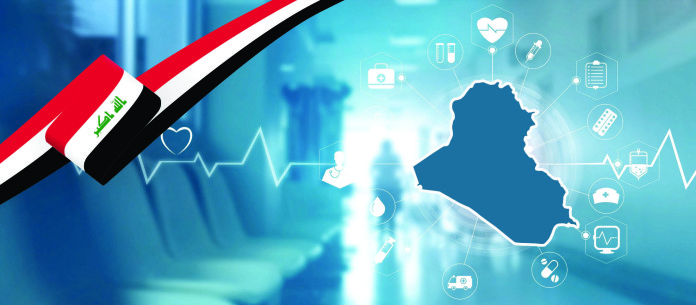Once viewed as having one of the most robust healthcare systems across the Middle East, the Iraqi healthcare system has experienced a steady decline since the late-1980s as a result of conflicts and the resultant economic troubles that have gripped the country. The biggest blows to the system came during the civil conflicts across the country after 2003 and, more recently, as a result of the rise of the Islamic State (IS) in 2014. The rise of the IS and the subsequent battles to liberate Iraqi territory from the militant group have severely damaged and outright destroyed many healthcare facilities that were already struggling to survive in the aftermath of the war in 2003. Similarly, the centralised system that was founded in the 1970s, which has since remained relatively unchanged, is barely able to meet the demands and needs of the Iraqi population. It is evident that a change to this beleaguered system is required.With the military defeat of the IS over the course of 2017, the agenda for 2018 and beyond appears to be reconstruction. The needs and challenges of rebuilding Iraqi cities and infrastructure bring with it an opportunity to restructure the system to better serve the needs of the Iraqi people as well as address the new challenges that resulted from the country’s turbulent history. Many of the challenges, such as the existence of a large, war-scarred populace, environmental degradation, shortages, corruption and growing drug abuse rates were not prevalent in Iraq when the system was built.Established as a way of coping with Britain’s health crisis in the aftermath of World War II, the British National Health Service (NHS) may offer lessons for Iraq in rebuilding its healthcare sector and looking after its populace. Like the Iraqi healthcare system, the NHS had a highly centralised structure but has changed and evolved over the years amidst the rise of new problems, new outlooks and new technologies. While it continues to suffer from problems today, it remains one of the most highly-regarded healthcare services around the globe.This paper aims to provide a historical context for the Iraqi healthcare system and the British NHS, showcasing how these different systems evolved and were challenged before providing suggestions on whether the Government of Iraq can build its post-War healthcare system within an NHS-like framework. This paper concludes that the NHS provides an excellent model towards addressing the demands and needs of its patients. The NHS also offers lessons towards employing a hybrid model of centralised and decentralised models that make response times more efficient. This paper concludes that the locally-funded healthcare sector from Norway can also provide lessons towards fostering local legitimacy while alleviating the impacts of corruption and bloated bureaucracy in the process. The fact that Norway itself is an oil economy should make application in an Iraqi context more relevant.This paper also concludes that a number of measures surrounding privatisation are not yet suitable for Iraq due to the aforementioned corruption. The authors believe that the health system itself as well as anti-corruption measures are not yet sufficiently entrenched to allow privatisation to take place without significant detriments to the poorer Iraqi populace.On the whole, however, this paper’s findings are that the NHS offers significant lessons towards providing robust and holistic healthcare to Iraq and its people, allowing the country to move beyond decades of steady systemic stagnation.











